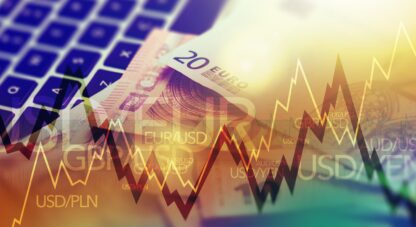About this week’s show:
- Gold & real estate great long-term insurance
- Treasuries OK now, but not later
- World debt is spelled doom”
About this week’s show: Dr. Marc Faber is often quoted in both national and international media. He has appeared at one time or another in virtually all financial media such as Bloomberg, CNBC, etc. and is a regular contributor to several leading publications around the world, Forbes and “International Wealth” a sister publication of the “Financial Times” amongst them. www.gloomboomdoom.com
The McAlvany Weekly Commentary
with David McAlvany and Kevin Orrick
Kevin:Our guest today is Marc Faber. But before we get to our guest, just a reminder that the latest video that you put out, David, “What Is Real Money?” can be found at mvalvany.com or on YouTube, typing in McAlvany Financial.
David, Marc Faber is one of my favorite guests, and I have to admit, I’ve got a warm spot in my heart this year for him because he came out at the beginning of the year, before gold really looked like it was doing anything, and he said that gold was going to be one of the better picks of the year. He often does not walk in lockstep with the masses, and I really like that about him.
David:One of the biggest changes we’ve seen in our generation is the rise of China. Quite interestingly, he moved to Asia in the 1970s. You will recall, Deng Xiaoping was introducing ideas which shaped, not only China, but now, consequently, all of Asia, in that sequence, and we see the insights he brings as being very unique, a real-time perspective. Not only does he have an investment banking background, he worked for many years in Switzerland, but then he moved to Hong Kong. He now lives in Thailand, he is anchored there, to see the pitfalls and opportunities in Asia and to explore global macroeconomic themes.
Marc, we enjoy, always, having you on the program. It is every year, twice a year, that you join the Barron’s Round Table, and the interview is very distinct. There are, in my view, three of you who tend to have more in common, Fred Hickey, Felix Zulauf, yourself, and then there is the rest. How do you see the contrast in that group? A very erudite group, but still with a particular divergence in views.
Marc Faber:I do not wish to be critical, but most of the participants on the Barron’s Roundtable are still very America-centric. They think the center of the world is America. I would say, relative to the rest of the world, the American economy peaked out sometime in the 1950s, early 1960s, and since then the rest of the world has grown and enlarged the economic sphere dramatically, whereas the U.S. has become a country where growth has been slowing down and where the standards of living, not of the 0.1% richest people, but of the medium households, typical households. These standards of living have been going down, and if you look at export figures around the world as a percentage of total exports, U.S. exports are down. If you look at industrial production as a percentage of the total world, U.S. industrial production is down and capital spending the same.
I am not saying that the U.S. economy today is not larger than it was in 1960, what I am suggesting is that other countries have become far more important, including India, China, Russia, and Brazil. The people that just focus on the U.S., in my opinion, miss a lot of opportunities overseas. Now, having said that, the U.S. markets have just about outperformed any other markets since 2011, and now the question for the investor arises, do I buy the U.S., which is at a very high level, or do I go into emerging economies or into Europe, which are areas that are far less demanding in terms of valuation?
David:We have your story. You moved to Asia in the 1970s, and so a perspective, certainly, on Asia, anchored in decades of real-time observation. Perhaps you could look at the short-term and long-term view on China, and pitfalls and opportunities you see in the years ahead, in Asia in general, and perhaps China, specifically.
Marc Faber:Well, I look at the whole world, and I don’t play stocks. I invest money. And if I have money for investments at the present time, then I have to choose: Do I buy the U.S. that has gone up approximately three times since 2009, and where valuations are high, and where the economy, at the very best, will grow at a very slow pace, or do I go into some emerging economies that have, relative to the U.S., a very low valuation.
Now, I do not dispute that maybe the U.S. market is like the U.S. market in 1987, and still goes up, say, 30%, not every stock moving up, but say the speculative stocks like Netflix and Facebook and Twitter, and Tesla, that can move up more. But I think, as an investor, if I take, say, a 5-10 year view, then I prefer to buy, from a valuation point of view, either European companies or emerging market companies. Because I can find in Asia, I can build a portfolio that has a dividend yield of, say, 5%. So I feel, not that valuations are particularly low, they are not at bargain levels, but they have become, after the break in emerging economies, stock markets have become reasonable.
David:There is reward in the stock market that has been a feature, the last five years, you have pointed out, since 2009, things in the U.S. have been very positive and the U.S. market has outperformed since 2011. Should we assume that risk has been banished from the equation, in the context of central bankers choosing to inflate asset prices?
Marc:Yes, that is a possibility, but it should be clearly understood that if central banks, or any monetary authority, wants to inflate asset prices continuously, the monetary inflation has to continuously accelerate, so the credit growth has to accelerate and then you eventually go into a colossal bubble, and eventually, the asset inflation [unclear] the consumer price inflation. If you look at the last few years, from 2007 to today, the typical household in America, inflation-adjusted, earned less than before. But the very wealthy people who own assets and are not complaining [unclear] those who own assets, they are doing very well. And then you create, with continuous money-printing, an environment where social cohesion breaks down and things, at some point in the future, the majority of people are impoverished, they will penalize the well-to-do people through higher taxes or expropriation.
David:There was a running assumption of quantitative easing having an inflationary effect. Certainly, quantitative easing I and II, we saw a positive effect on the precious metals. Then quantitative easing III and IV did not. And now, in the context of QE reduction, the taper, as they describe it, metals have been moving up again. What is the relationship, today, between the printing press and the precious metals market?
Marc:This is a very good question. First of all, the problem that is not recognized by central banks, sufficiently, but was already identified by Copernicus, and David Hume, and Irving Fisher, is that when you print money, not all prices rise equally, and at the same time. In other words, you print money; there can be a rise in wages, there can be a rise in commodity prices, there can be a rise in real estate, there can be a rise in NASDAQ stock prices, there can be a rise in blue chip stock prices, there can be a rise in foreign currencies, there can be a rise in art prices. But not all prices go up equally, and that is what the viciousness of money-printing brings about.
My view would be, the precious metals were in a bull market 1999 to 2011, and since then they have corrected, but equity prices continue to rise. And now, say tomorrow you get a million dollars. What is better to buy? Nothing is cheap, but relatively, the S&P 500? The Dow-Jones? Or gold and silver? In my view, gold and silver are extremely depressed compared to the S&P 500. Since November, when I first began to talk about the tremendous under-valuation of mining stocks compared to the S&P, they have rallied strongly. Some stocks like [unclear] have doubled in price, and I think I would wait for a correction to increase my position. But this is one of the very few asset classes in the world that is depressed.
David:In the 1970s we had the IMF gold sale announcements used a means of bullying the gold price. How do you respond to the idea of manipulation in the gold market in 2013? Can that continue?
Marc:This is, again, a very good question. I am not an expert on manipulation. Some of my friends who follow the gold market from an insider point of view much closer than I do, like Eric Sprott, they are convinced that there was manipulation of the gold price. This I answer, I don’t know, but if there was, and I hope there was, then the gold price will sooner or later explode on the upside. And I’m saying, explode, because there must be a lot of naked shorts, and as the gold price moves up, they will have to cover. I actually hope that the so-called conspiracy theories that say that there was manipulation, and there may very well have been, I just don’t know, I cannot say something I’m not 100% sure about, but if there was manipulation, I think the gold price has a huge potential on the upside.
David:Let’s go back to the U.S. markets. As the stock market reached a peak in 2007, New York Stock Exchange margin debt reached a peak of 381 billion. Now with new highs being taken out each month in the current context, we are at 451 billion dollars, that is, again, margin debt, and we have seen five consecutive months of all-time highs, in terms of borrowing to go invest in stocks. How should an investor view these borrowed funds in the marketplace?
Marc:In my opinion, investors, when you talk to them, they all agree we should buy low and sell high, but when it comes to actual action, they all buy high and sell low. And in my view, and it is not only my opinion, for instance, GMO that runs money, their expected future return for the next seven years in the U.S. stock market is negative. I’m not sure it will be negative, because it depends how much money the Fed will print. But I think at some point in the U.S. there will be opposition to money-printing. In other words, some dissenting voices, so if they continue to print the Dow Jones could go to 150,000, to 1,500,000, to 15,000,000. It depends on how much money you print, and watch the currency. My view is, I don’t know, but I told you at the beginning, we are in the 5th year of a bull market. By historical standards, this will not be followed by only a correction of 10-20%, but by a major bear market. Now, does the bear market start here, or from a higher diving board? I don’t know, but I think it’s the wrong time to invest in U.S. stocks at the present time.
David:The current intentions are, here in the United States, for a reduction of our global military presence. That may be fiscally responsible, that may be fiscally helpful. I wonder what your view is, when we look at the U.S. dollar, how critical is the U.S. military presence to perpetuating a shadow, if you will, of power and control, of importance, in a post-Bretton Woods monetary system? The dollar is still dominant, but on what basis?
Marc:I think the days of domination are gone. Maybe the U.S. can drop some bombs and send in some drones, and so forth, but they will never control the ground. It is too messy. And the experience of Iraq and Afghanistan is a complete disaster. The American public should realize military expenditures flow into the pockets of a few people, and massively, I repeat here, massively, enrich them. So the military complex is very powerful, and it is a very corrupt system, but this is simply the fact, and that is why the military will continue to be very large, not just in the U.S., but also elsewhere. This is about power and money.
When it comes to military in the U.S. compared to other countries, as I said, the U.S. problem, and I wrote about this recently, is that they have something like 200 military bases all over the world. Now, say there is a conflict close to Russia. How many troops can they allocate to that? If there is a problem close to China, how many troops can they allocate to that? The U.S. military importance, relative to the rest of the world, has gone down, plunged, and the U.S. military actions around the world have created more enemies than friends.
David:Many people have suggested a historical analogy between the U.S. and Rome. Certainly, what you just said reminds us of an empire that is spread thin. Maybe that’s where the analogy ends.
We want to look at commodities in general. Commodities did move as a pack 5-7 years ago. Today, we have industrial commodities very much off their peak numbers, while precious metals are, as well, as we discussed a moment ago. At least since the beginning of the year, precious metals have done well. As you mentioned, the miners have done exceptionally well, while the industrial metals have not done so well. How do you see the segmentation going forward?
Marc:This is correct, but I think investors have to understand, it’s like the stock market. Since the beginning of the year, most stocks are down, but a few stocks are up, and they are driving the index. And in the commodity complex, different commodities move at different times. The price of orange juice and coffee and cocoa have nothing to do with global economic growth. It has to do with supplies. And talking about commodities, as an example, some industrial commodities are down, and I think they are bottoming out at the present time, whereas coffee jumped by 70% in the last four months, and so each investor has to be very careful which commodity he chooses. The individual investor is not well informed enough, and I am not well informed enough, to choose, all the time, the commodities that will move the most. So I stick, essentially, to precious metals, and I stick mostly to gold. I have to say that there will be times when silver moves up more than gold, and other times when platinum moves up more than gold, and other times when palladium moves up, but I personally own physical gold, and I continue to accumulate physical gold, and I think the central bankers we have today, like all academics, will never admit that they made a mistake. What they will say is, “We didn’t do enough.” So they will print even more.
David:I’m very curious to see what the results are, in April, we have the second conference in a row, last year was the first, I think this is the second year, at the University of California, Berkeley, sponsored by the World Gold Council, and the discussion point, the executive meeting is for central bankers to learn how to utilize gold as a reserve asset. Does this speak to a fundamental shift, either in the direction of gold, or away from dollars, or just a recalibration, completely, of the world global monetary system?
Marc:Central bankers, in general, hate gold, because the price of gold tells you some truth which they don’t want to broadcast. No matter that the gold price has come down in the last two years from 1900 to, at the low, below 1200. The fact is simply that it is up from 250 in 1999 and has way outperformed even after the decline, and after the colossal rise in U.S. stocks it has outperformed stocks. And central bankers, I guarantee you, unless the market forces [unclear], and completely discredits them, they will never accept the gold standard. Never. But the market, one day, will discredit them completely. Unfortunately, if completely uneducated people that just went to university, and have a university degree, and have never worked a single day in their life in the private sector, these people, after everything collapses, will be hired by some stupid financial institutions to give speeches for $250,000 a pop. I hope the financial institutions, by then, will also be bankrupt, so they won’t be able to pay [unclear] to central banks.
David:To frame the issue of where you see the greatest risks and potential rewards, I have a thought experiment for you. Marc Faber takes a hiatus from the financial markets, and you haven’t really decided yet whether or not you are going to be gone for three years, five years, ten years, but you want to take a hands-off approach for those periods. How do you arrange your affairs, financially, before stepping away, in light of your current anticipations?
Marc:I think if I didn’t know where I was going and for how long, I think I would invest most of my money in real estate and precious metals, and maybe I would own some quality companies that I would think would survive the worst hardship, that maybe the stock prices dropped 50 cents, but never mind, at least you would still have something. I would avoid cash and sovereign debt.
David:Avoiding cash and sovereign debt is intriguing because there is certainly an argument, whether it is the argument of demography driving deflation, or mountains of debt driving us toward a deflationary collapse, it seems, perhaps, you are taking the other view that the central banks of the world will fight tooth and nail to avoid a deflationary downward spiral.
Marc:I am convinced, eventually, you do get the deflationary collapse, but I would not bet that you would get it tomorrow. You understand, maybe in index of prices of assets that today is at 100, in theory it could go up to 1000, it could go up to 500, or it could go up to 100,000 before the collapse happens. This is the challenge. When do you know when the collapse happens? For sure it will happen. I mean, for sure, that I guarantee. For that, I am prepared to make a bet. I am prepared to make a bet. From what level of Dow Jones, and gold prices, and real estate prices – that I am not prepared to, because I have seen hyperinflation in countries when prices would go up 300-400 times, sometimes a million times, before the collapse came. That’s why I am suggesting that real estate is not such a bad option. It’s not the best option, but it’s one option to have some money in solid assets. Now, with real estate, it also depends where it is, the location, and the price you pay for it, and, and, and. So I am suggesting that cash and government bonds, and bonds in general, in this bubble environment, may not be desirable. Having said that, I recently bought some ten-year treasuries at a yield of close to 3% because I want to have an exposure if the stock market has a big decline. In other words, I’m buying a put on the stock market, with treasuries, the put being relatively inexpensive.
David:So, in a short-term view, that seems to be an attractive trade, and from a long-term view, sovereign debt and cash could be avoided.
Marc:Yes, completely unattractive.
David:You know, we have the issue, also, of how we account for our deficits in the United States, and last year was quite an improvement from 2012. We went from 1 trillion, 89 billion, as the headline deficit was reduced to 680 billion. Why is it, do you think, governments avoid using the same kind of accounting which corporations are required to use, the generally accepted accounting principles?
Marc:Well, if they used corporate accounting, GAAP accounting standards, with the unfunded liabilities the deficit would be something like 6 trillion dollars annually for the last few years, so they don’t want to tell the truth. But the fact is simply, either in future, benefits will have to cut significantly, or you have to print your money out of the problem. Neither option is very desirable. Moreover, no politician in the U.S. will ever go to the public and say, “Look, I am very sorry, it’s not my fault. For 30-40 years we lived above our standard of living. We lived way beyond what we earned. Now it’s payback time. Now we need austerity for 3-4 years to bring back the financial position of the government in a proper proportion.” That will never happen because that kind of politician will go to the Social Security recipient and the Food Stamp recipient and they will have to cut the benefits, he is not going to be elected. Period. So you have to keep on promising heaven on earth, which inevitably, will not happen. It will get worse and worse.
David:There is never a dull moment in the financial markets and as we have discussed today, and as you often do in your newsletter, always well worth the read, there is opportunity juxtaposed with crisis.
We appreciate your insights. We appreciate the work that you do. I have been reading you for years and years and years, and would encourage our listeners to do the same.
Marc:Very kind of you.
David:And I look forward to the publishing of the next book, whatever that may be, whenever it may be. You have a way of teaching, and bringing insights, very unique, with a historical and cyclical context in mind. So, do take some time off so that you have the energy to put forth another effort. We look forward to your published works. Thanks for joining us again, Marc.
Marc:It is my pleasure. Thank you so much.















